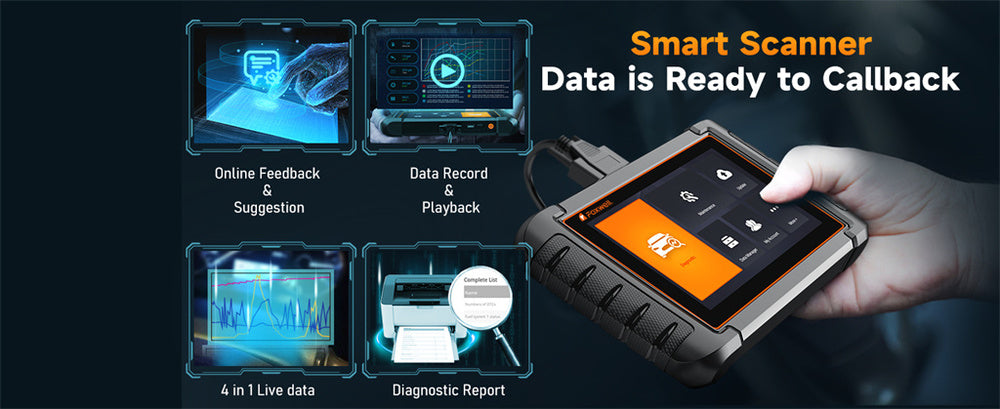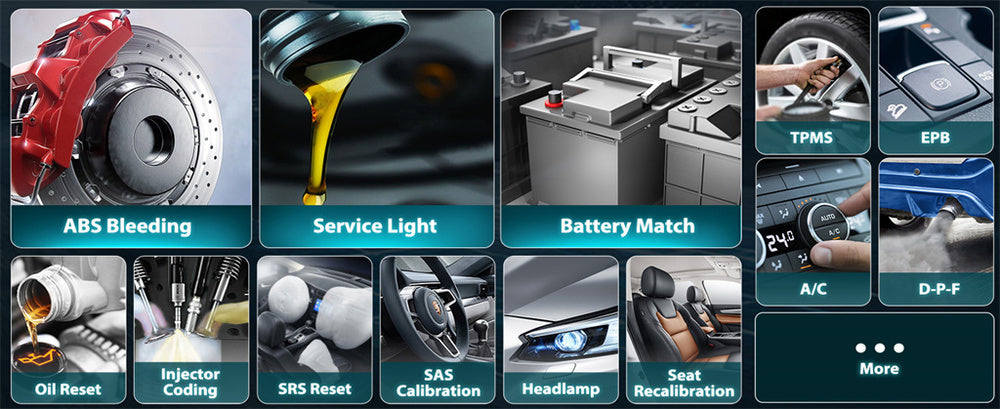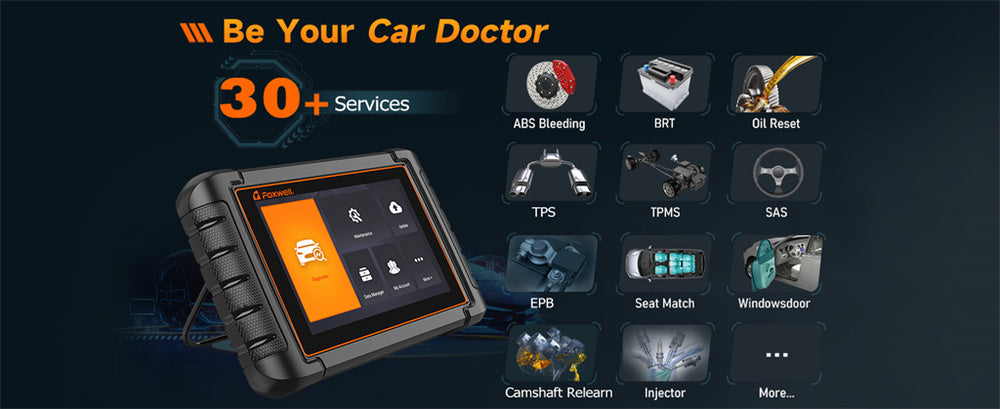Yes, OBD2 scanners can indeed detect a bad coil pack. These handy tools read trouble codes from your vehicle's computer, which can indicate various issues, including problems with the coil pack. Now, let's dive into what an OBD2 scanner and a coil pack are, and how they work together to help you maintain your vehicle.
An OBD2 scanner is a device that car owners use to diagnose issues by reading trouble codes from their vehicle's computer. It's a great way to figure out what's wrong with your car without having to go straight to a mechanic.
The coil pack, on the other hand, is a crucial part of your car's ignition system. It takes the low voltage from your car's battery and transforms it into the high voltage needed to create the spark that ignites the fuel in your engine. If your coil pack is bad, your car might experience a range of issues.
Common Symptoms of a Bad Coil Pack

One of the most noticeable signs of a bad coil pack is engine misfires. If you feel your engine sputtering or hear it running unevenly, especially when accelerating, it could be due to a faulty coil pack.
The coil pack’s job is to provide the necessary spark to ignite the fuel in each cylinder. When it fails, the cylinder might misfire, leading to a rough running engine. This is not only annoying but can also lead to more serious engine damage if not addressed promptly.
Another symptom to watch out for is a drop in your vehicle's fuel efficiency. If you find yourself filling up your gas tank more often than usual, it might be because your engine is not running as efficiently due to a bad coil pack.
A failing coil pack can cause incomplete combustion, meaning your engine has to work harder and consume more fuel to produce the same amount of power. Over time, this can significantly impact your wallet and the environment.
If your car is having trouble starting, especially on cold mornings, a bad coil pack could be the culprit.
The coil pack needs to generate a strong enough spark to ignite the fuel in the cylinders. If it’s not working properly, you might experience extended cranking times or the engine might not start at all. This issue can be particularly problematic in cold weather when the engine requires a more robust spark to start.
Your car’s check engine light is like a warning beacon that something isn’t right. If the light comes on, it’s often due to an issue detected by your car’s computer, which could include a bad coil pack.
Modern vehicles have sensors that monitor the performance of the ignition system, including the coil packs. If the computer detects a problem, it will trigger the check engine light and store a diagnostic trouble code (DTC). Using an OBD2 scanner, you can read these codes to determine if a bad coil pack is the issue.
Finally, if you notice a lack of power or sluggish acceleration, it might be due to a failing coil pack. The coil pack is essential for providing the spark that ignites the air-fuel mixture in the engine’s cylinders. Without a strong and consistent spark, the engine can't produce the power needed for optimal performance. You might experience hesitation, stumbling, or a general lack of responsiveness when you press the accelerator.
By recognizing these symptoms early, you can diagnose and address issues with your coil pack before they lead to more severe engine problems. If you suspect a bad coil pack, using an OBD2 scanner can help confirm the diagnosis and point you in the right direction for repairs.
Detecting a Bad Coil Pack with an OBD2 Scanner
Now, let's talk about how an OBD2 scanner can help you detect a bad coil pack. When your car's computer senses a problem, it stores a diagnostic trouble code (DTC) that corresponds to the issue.
For coil pack problems, you'll usually see codes in the range of P0351 to P0358. Each of these codes points to a specific cylinder where the coil pack might be failing. For example, P0351 indicates an issue with the coil pack in cylinder 1. By plugging in your OBD2 scanner and reading these codes, you can pinpoint exactly where the problem lies.
Interpreting OBD2 Scanner Results
When your OBD2 scanner throws up a code, the first thing you need to do is understand what it means.
For instance, if you're using the Foxwell NT809TS scanner, it provides a comprehensive list of diagnostic trouble codes (DTCs) and their meanings right on the device. This scanner can read a wide range of codes, including those related to ignition coil issues.
For example, codes like P0351 to P0358 each correspond to specific problems with the coil packs in different engine cylinders. P0351 indicates an issue with the coil pack in cylinder 1, P0352 in cylinder 2, and so on. The Foxwell NT809TS not only displays these codes but also offers detailed explanations, making it easier to pinpoint the exact problem.
Once you have the codes, the next step is to decide what action to take. With the Foxwell NT809TS, you can access live data streams and perform advanced diagnostics to get a clearer picture of your vehicle's health. If you see a code indicating a bad coil pack, you can use the scanner to check the performance of each coil in real-time.
This helps confirm whether the issue is with the coil pack itself or something else, like the wiring or connectors. By providing this level of detail, the Foxwell NT809TS helps you make informed decisions about repairs, saving you time and money in the long run.
Limitations of OBD2 Scanners in Detecting Coil Pack Issues
However, it's important to note that OBD2 scanners aren't perfect. There are situations where a scanner might not detect a bad coil pack. For example, if the coil pack is intermittently failing, it might not trigger a trouble code.
Also, some issues can be misdiagnosed if the problem is actually with the wiring or connectors rather than the coil pack itself. This is why it's crucial to combine the scanner's data with a visual inspection and possibly other diagnostic tests.
Steps to Take if Your OBD2 Scanner Detects a Coil Pack Issue

If your OBD2 scanner detects a problem with the coil pack, there are a few steps you should take. First, double-check the code to ensure it’s accurate. Then, inspect the coil pack and its connections.
Look for signs of damage or wear, such as cracks or corrosion. If the coil pack looks bad, it might be time to replace it. If you're not comfortable doing this yourself, it's a good idea to take your car to a professional mechanic. They can run further tests to confirm the diagnosis and ensure that the coil pack is indeed the issue.
Preventive Measures and Maintenance Tips
Lastly, let's talk about how to keep your coil packs in good shape. Regular maintenance is key. Make sure to follow your vehicle's recommended maintenance schedule, which usually includes checking and replacing spark plugs and coils as needed.
Using high-quality parts can also make a big difference. And if you ever notice any of the symptoms we talked about earlier, don’t ignore them. Catching and addressing issues early can save you a lot of trouble down the road.
Conclusion
OBD2 scanners, like the Foxwell NT809TS, are great for detecting bad coil packs by reading specific trouble codes. They can help identify issues when you notice symptoms like engine misfires or poor fuel economy.
However, they aren't perfect and sometimes require a visual inspection for confirmation. Regular maintenance and high-quality parts are key to keeping your coil packs in good condition and preventing bigger problems.
FAQ
How can I tell if my coil pack is bad without an OBD2 scanner?
Look for engine misfires, poor fuel efficiency, difficulty starting, and the check engine light. These symptoms often indicate a failing coil pack.
Can a bad coil pack damage other parts of my car?
Yes, a bad coil pack can cause engine misfires, which may damage the catalytic converter and other engine components if not addressed promptly.
How often should I check or replace my coil packs?
Inspect coil packs during major services or if symptoms appear. They typically last around 100,000 miles, but regular checks and using high-quality parts can help extend their life.




Leave a comment
This site is protected by hCaptcha and the hCaptcha Privacy Policy and Terms of Service apply.